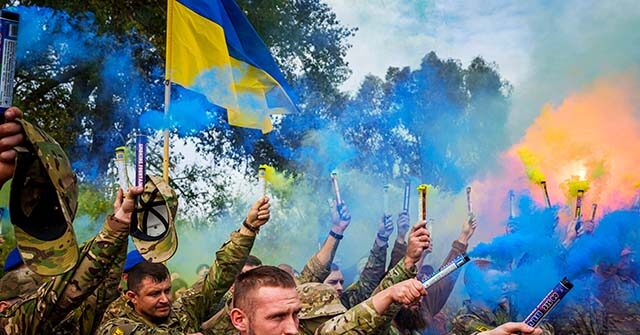Bohdan Krotevych, the acting commander of Ukraine’s Azov Brigade, recently stirred considerable debate by suggesting that South Korea might consider taking military action against North Korea while many of the North’s elite troops are reportedly engaged in supporting Russia’s war efforts in Ukraine. Krotevych, whose brigade has garnered attention for both its effective combat performance and its controversial associations with neo-Nazi ideologies, expressed his opinion in a social media post released in Korean, which he used to frame the potential action as a unique opportunity for South Korea to reunite the Korean Peninsula—a division he attributes to the Soviet regime after World War II. He extended the proposal by asserting that this could also benefit other East Asian countries wary of North Korea’s nuclear capabilities.
Despite the intense context of Krotevych’s remarks, the reception from South Korea was largely dismissive. Critics quickly pointed out that North Korea maintains a formidable military presence, with the majority of its troops still stationed within the country, particularly near the heavily militarized Demilitarized Zone (DMZ). The disparity—a mere 10,000 out of an estimated 1.1 million troops reported to be deployed elsewhere—underscored the impracticality of any military action against the North. Many South Koreans expressed skepticism not only over the effectiveness of a potential assault but also underscored the province of power held by North Korea in terms of its existing nuclear arsenal.
The conversation sparked by Krotevych’s comments—indicative of the complexities surrounding military deliberations—actually led him to proclaim satisfaction with the discourse it ignited. He highlighted the importance of recognizing North Korea as a significant adversary, suggesting that the animosity expressed in North Korea’s constitution towards South Korea justifies a strong and united front. In his view, only countries such as Ukraine and Israel are currently embodying the posture of moral strength against perceived global evils. Such sentiments reveal the ideological leanings of Krotevych, who connects military strength with the moral obligation to confront threats.
The South Korean government is independently reflecting on North Korea’s reported military involvement in the conflict between Russia and Ukraine. The cooperation between the two nations has raised alarms in Seoul, prompting officials to evaluate their defense policies, which may now include phased responses that potentially involve supporting Ukraine with military supplies. This development indicates a possible shift in strategies as South Korea seeks to bolster its own security measures in light of changing geopolitical dynamics exacerbated by North Korea’s actions.
In response to Krotevych’s assertions, North Korea has vehemently rejected the allegations concerning troop deployments, branding them as unfounded rumors intended to tarnish its reputation globally. The North’s official commentary serves as a reminder of its long-standing commitment to portraying a narrative that defends its sovereignty and cooperative relationships with other states. Diplomatic tensions remain a constant, fueled by escalations from both North Korean actions and external military support to Ukraine.
The discourse around military intervention, especially by nations such as South Korea, highlights broader implications regarding deterrence and geopolitical maneuvers in the East Asian region. While Krotevych’s call for action appeared to resonate with some of the realities of the ongoing North and South Korean tension, the underlying matters of nuclear threat and military calculus rendered the notion of a straightforward military assault impractical. As discussions over security and cooperation are increasingly pertinent, it becomes ever clearer that decisions made within this complex dynamic will significantly influence regional stability and the nature of international relations in the face of North Korea’s evolving military posture.

